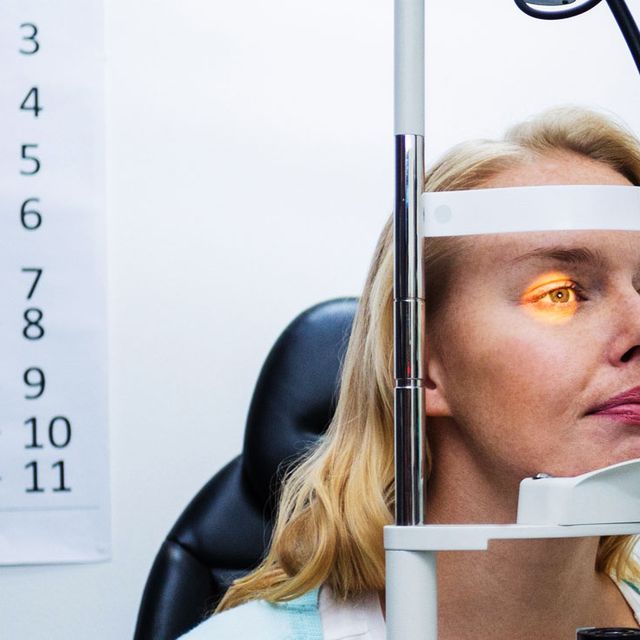
Glaucoma Testing and Work Up in Gainsville, FL

Glaucoma is a serious eye condition where the optic nerve, which connects the eye to the brain, can become damaged. This can have a detrimental effect on our ability to see clearly. Although it is most often diagnosed in older adults aged 60 and above, it can happen at any age. For this reason, glaucoma testing is nearly always included in a routine eye health assessment.
What is glaucoma and what causes it?
Glaucoma is a progressive optical condition that causes damage to the eye’s optic nerve. The optic nerve connects the eye to the brain and is responsible for carrying impulses from the retina to the brain - which then interprets them and tell us what we can see. If the optic nerve is adversely affected, our vision can become irreparably compromised.
Glaucoma is primarily linked to an accumulation of pressure inside the eye. This is called intraocular pressure, or IOP. Exactly what causes the intraocular pressure to increase can vary. In some instances, the fluid inside our eyes is unable to flow normally out of the eye, leading to a build-up of liquid that pushes the pressure up. Trauma or chemical injury to the eye, severe eye infections, inflammatory conditions and blocked blood vessels inside the eye can also all contribute to rising intraocular pressure.
Types of glaucoma
There are primarily two different types of glaucoma. Open-angle glaucoma, which is the most common, develops slowly over a number of years. The symptoms are usually mild and easily overlooked until they are too significant to ignore. Closed-angle glaucoma is fairly uncommon and occurs when the pressure in the eye builds very suddenly. This can be very painful and permanently affect your sight.
Why is glaucoma testing important?
Glaucoma testing is important enough to form part of routine eye examinations. This is because glaucoma can lead to partial and eventually complete vision loss if it isn’t diagnosed and treated promptly. By assessing your eyes for glaucoma on a regular basis, we can ensure that if you develop the condition, you are treated at the earliest possible time.
What is involved in glaucoma testing?
Glaucoma testing involves five different elements. You can expect each of these to be carried out before a diagnosis of glaucoma can be made. These include the following:
Tonometry
This is a test that checks the inner pressure of your eye. Eye drops are first administered to numb the eyes, then a small amount of pressure is applied to them either by a tiny device called a tonometer or a puff of air.
Ophthalmoscopy
This diagnostic procedure enables us to examine your optic nerve to see if there is damage to it. Eye drops are required to dilate your pupils, and we will then use a small piece of equipment with a light on the end to look through your eye to assess the shape and color of the optic nerve.
Perimetry
Also known as visual field testing, this test produces a map of your total field of vision so that we can assess if there are blind spots or problems with your peripheral vision. This test is non-invasive and involves watching a light that moves in and around your peripheral vision.
Gonioscopy
This test is designed to determine whether the angle where the iris meets the cornea is open and wide or narrow and closed. After being given eye drops to numb your eye, a special contact lens is placed on the eye so that we can assess the angle. This will help us to see what type of glaucoma you are suffering from.
Pachymetry
It may surprise you to learn that the thickness of the cornea, which is the clear window at the front of the eye, can influence the amount of pressure that is in our eyes. In some instances, it may be that a patient has an abnormally high IOP reading because their cornea is unusually thick. To better understand whether your higher IOP reading is a cause for concern, we will measure the thickness of your cornea. To do this, a small probe is placed onto the cornea. It is painless and over in seconds.
We are delighted to be able to offer a comprehensive glaucoma testing and work up service which will be able to tell us if you are at risk of, or already suffering from glaucoma. Using this information, we can take important steps to preserve your vision.
If you would like to arrange an appointment for glaucoma screening at our offices in Gainesville, FL today by calling 352-702-9700.



